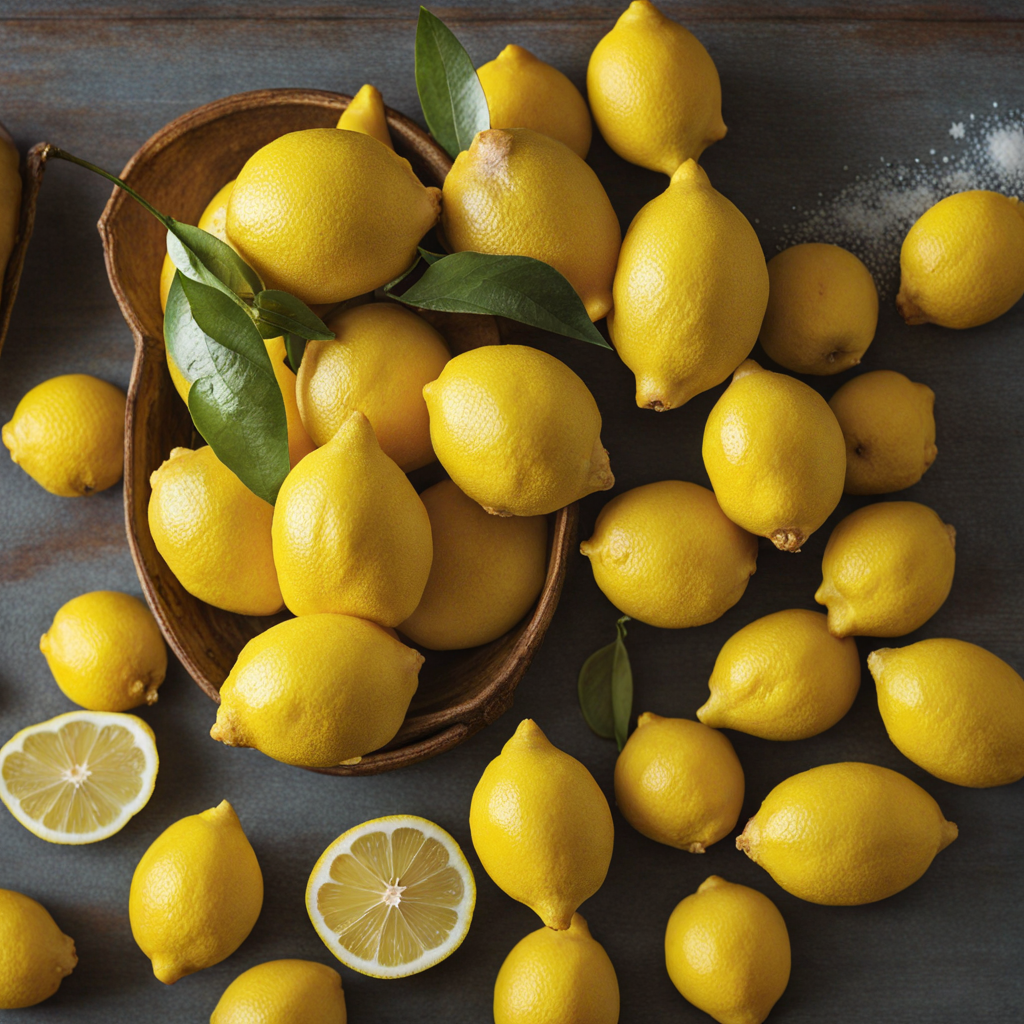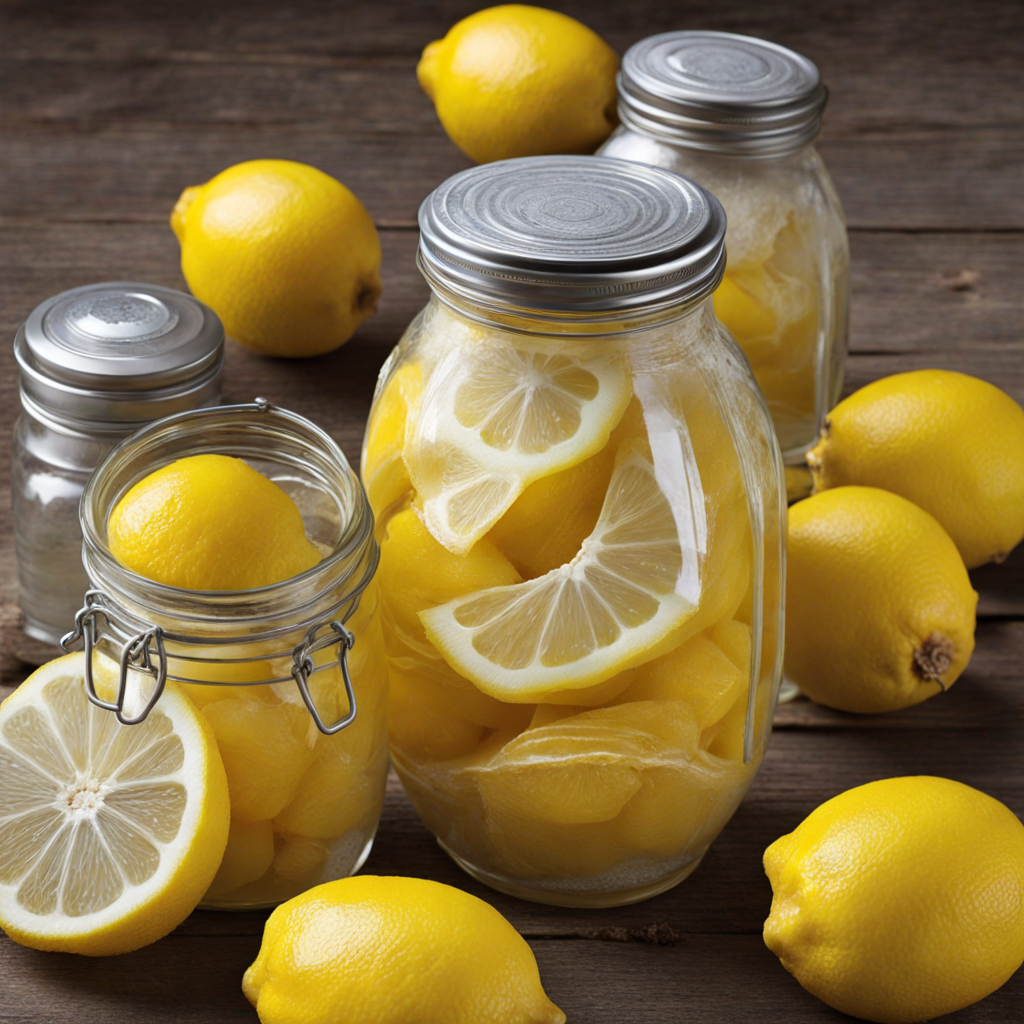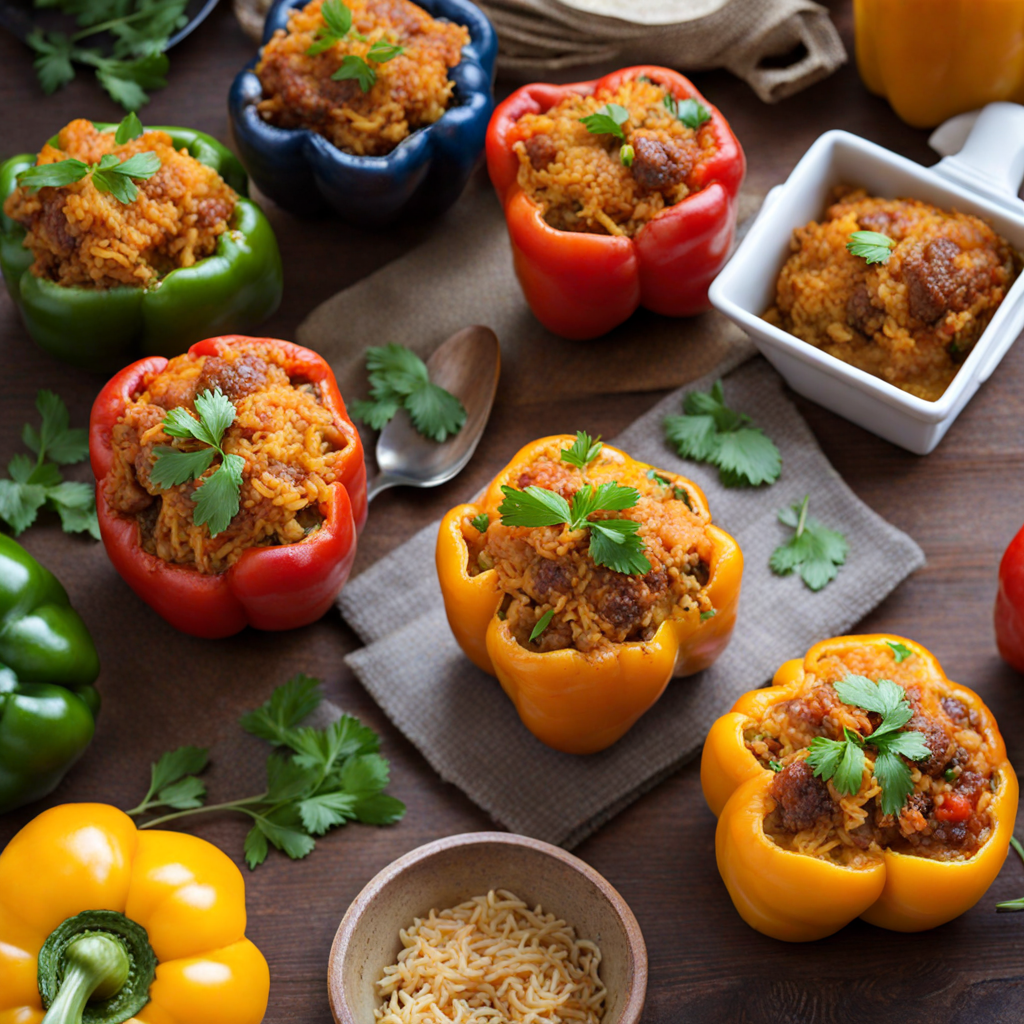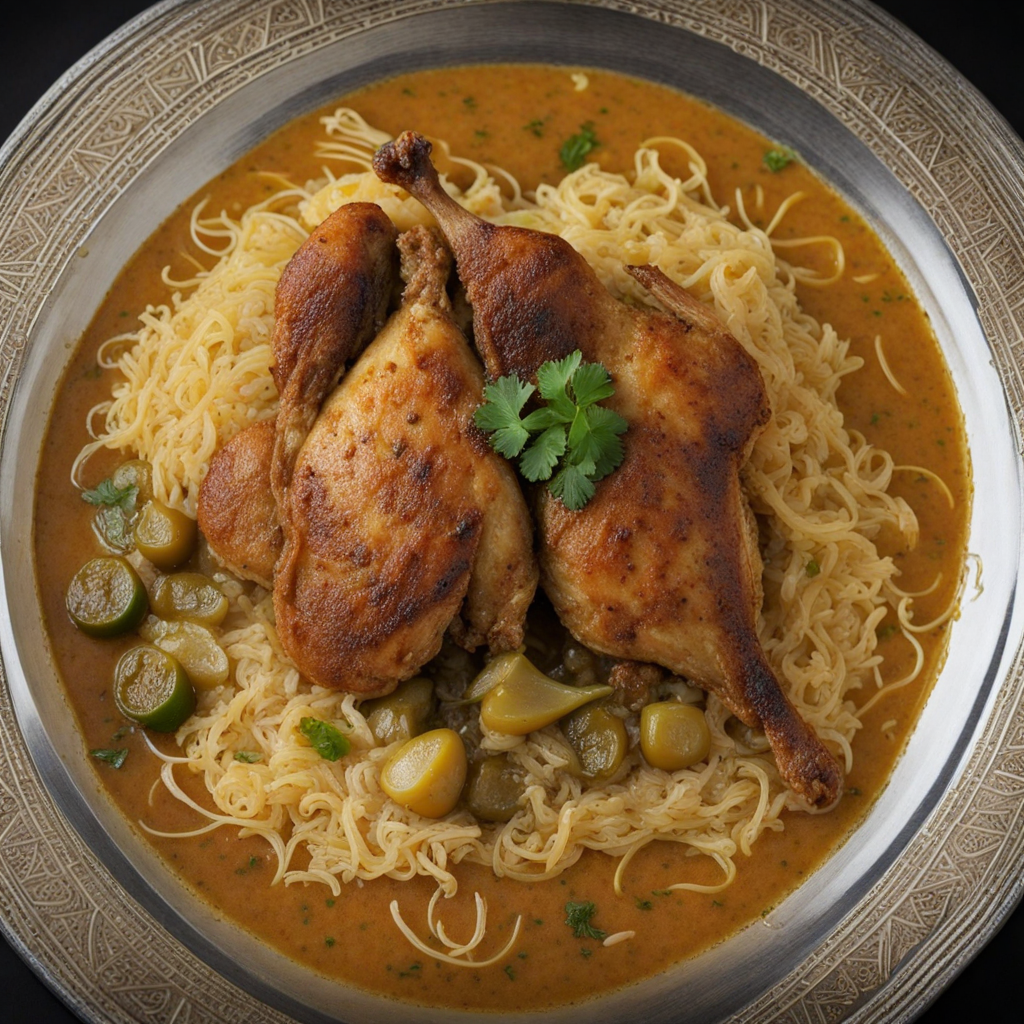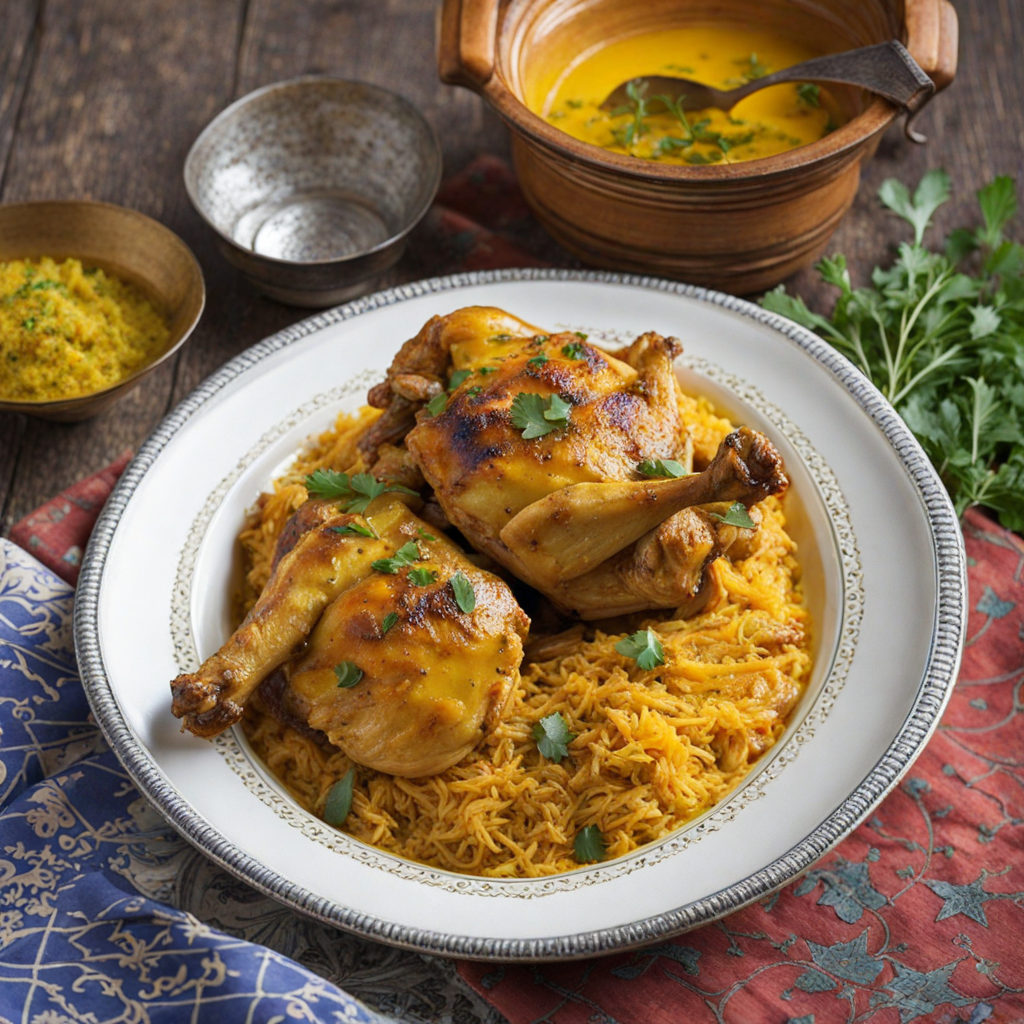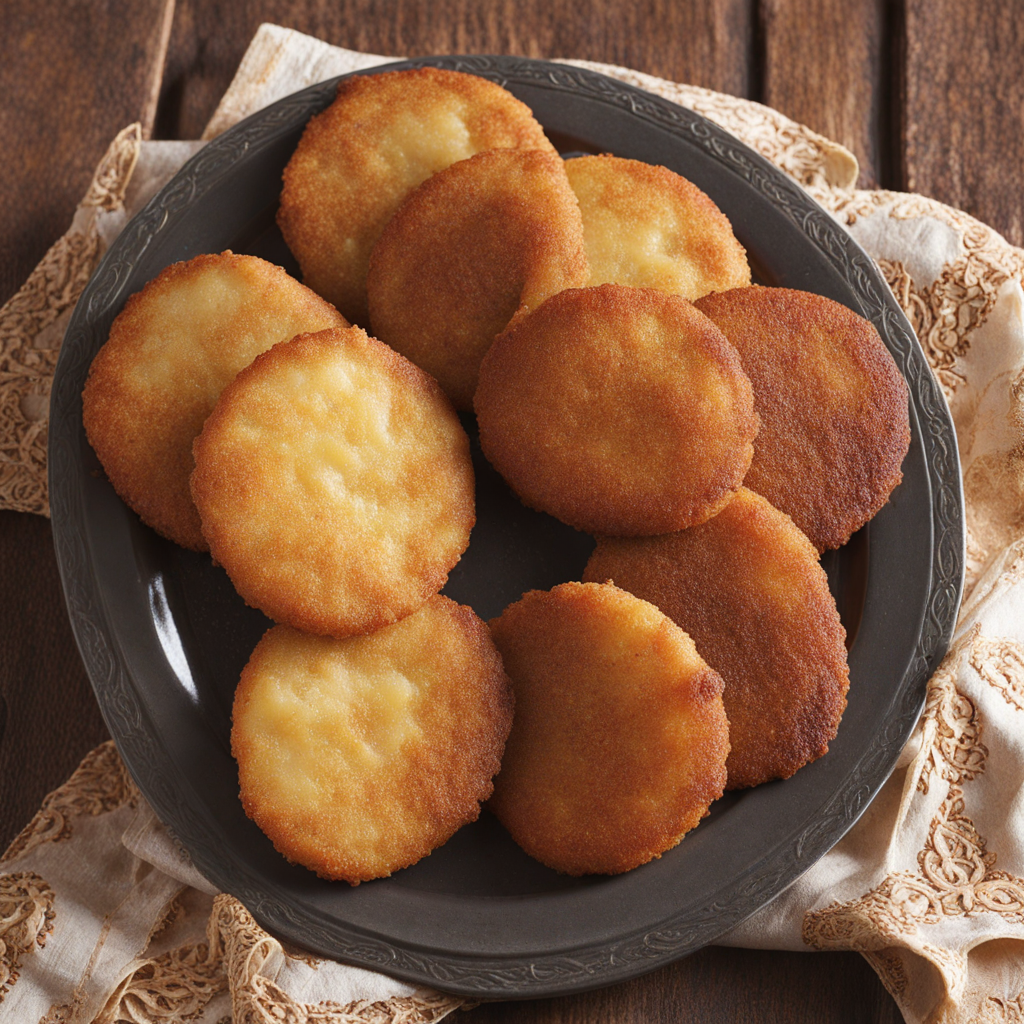Preserved Lemons
Preserved lemons are a quintessential ingredient in Moroccan cuisine, celebrated for their unique ability to transform dishes with their intense flavor. These vibrant, sun-kissed lemons are typically prepared by packing whole lemons with coarse salt and allowing them to ferment in their own juices for several weeks. This process mellows the lemons' tartness while infusing them with a deep, savory umami quality. The result is a tangy, salty, and slightly sweet citrus fruit that adds a burst of flavor to a variety of dishes, making them an essential pantry staple for anyone looking to explore Moroccan flavors. The use of preserved lemons extends beyond just enhancing taste; they are also a testament to the art of preserving food in a culture that cherishes bold flavors and aromatic spices. Often found in tagines, salads, and marinades, preserved lemons pair beautifully with a variety of ingredients, including olives, meats, and grains. Their complex profile can elevate a simple dish, providing a delightful contrast to rich, hearty meals. When finely chopped or blended into dressings, they offer a zesty kick that awakens the palate and adds an intriguing layer to everyday recipes. In addition to their culinary applications, preserved lemons bring an exotic twist to fusion dishes, inspiring chefs and home cooks alike to experiment. Whether you're adding them to a classic Moroccan chicken tagine, stirring them into a couscous salad, or using them to brighten up a seafood dish, preserved lemons are a versatile ingredient that can redefine your cooking. Their distinctive flavor will not only introduce you to the vibrant world of Moroccan cuisine but also encourage you to explore the broader spectrum of preserved foods that enhance the international culinary landscape.
How It Became This Dish
The History of Limon Mkhallal: Pickled Lemons in Moroccan Cuisine #### Origins Limon Mkhallal, or pickled lemons, is a quintessential ingredient in Moroccan cuisine, renowned for its vibrant flavor and unique preservation method. The origins of this culinary delight can be traced back to the Mediterranean and North African regions, where citrus fruits have been cultivated for thousands of years. The lemon, believed to have originated in Southeast Asia, made its way to the Mediterranean through trade routes, becoming a staple in both culinary and medicinal practices. In Morocco, lemons have long been associated with the arid climate, where their tartness is a welcome contrast to the heat. The custom of pickling lemons likely developed as a means of preserving the fruit, allowing it to be enjoyed year-round. The practice reflects a broader trend in North African cuisine, where preservation techniques such as salting, drying, and fermenting are used to enhance flavors and extend the shelf life of perishable foods. #### Cultural Significance In Moroccan culture, Limon Mkhallal extends beyond mere culinary use; it embodies the essence of hospitality and culinary artistry. Moroccan meals often feature a variety of flavors and textures, and pickled lemons contribute a distinctive tang that complements the complex spices prevalent in dishes like tagines and couscous. The bright yellow, slightly wrinkled lemons add both visual appeal and a burst of flavor, enhancing the overall dining experience. Limon Mkhallal is also an integral part of traditional Moroccan feasts and celebrations. It is commonly served alongside dishes during Ramadan, weddings, and family gatherings. The act of preparing pickled lemons is often a communal activity, involving family members in the selection, preparation, and preservation process. This not only strengthens familial bonds but also passes down culinary traditions and knowledge from one generation to the next. #### Development Over Time The art of pickling lemons has evolved over the centuries, influenced by various cultural interactions and trade. In the early days, the process was relatively simple: lemons were preserved in a brine made of salt and water, sometimes flavored with spices like coriander or cumin. This method ensured that the lemons would remain edible long after the harvest season. As Morocco became a melting pot of cultures, particularly during the Islamic Golden Age, the practice of pickling lemons took on new dimensions. The introduction of spices and herbs from the East, such as cinnamon and saffron, began to infuse the pickling process with diverse flavors. The influence of Berber, Arab, and Andalusian cuisines further enriched the preparation of Limon Mkhallal, leading to a more sophisticated and nuanced approach. The 19th and early 20th centuries saw increased trade between Morocco and European countries, particularly France. With this, the exposure to culinary practices from abroad led to a refinement of Limon Mkhallal. French culinary techniques and presentation styles began to influence Moroccan cooking, and the use of Limon Mkhallal became more widespread in both home cooking and upscale restaurants. In contemporary Moroccan cuisine, Limon Mkhallal often finds itself featured in a variety of dishes beyond traditional recipes. Chefs experiment with it in salads, marinades, and even contemporary fusion dishes, showcasing its versatility. Importantly, the revival of interest in traditional ingredients and methods has led to a renewed appreciation for Limon Mkhallal among younger generations, who are increasingly interested in their culinary heritage. #### The Pickling Process The traditional method of making Limon Mkhallal involves selecting firm, ripe lemons, which are then carefully washed and cut into quarters, leaving them attached at one end. These lemons are packed with coarse sea salt and sometimes mixed with spices like cinnamon sticks, bay leaves, or peppercorns. The salted lemons are placed in a sterilized jar, where they are allowed to ferment in their own juices for several weeks. As the lemons pickle, they soften, and the salt infuses them with flavor, transforming their tartness into a complex, savory taste. The process of making Limon Mkhallal is as much an art as it is a science. The balance of salt to lemon juice, the choice of spices, and the duration of fermentation all play a crucial role in achieving the desired flavor profile. Many Moroccan families have their own secret recipes and techniques, passed down through generations, making each jar of pickled lemons a unique expression of family heritage. #### Modern Uses and Global Influence Today, Limon Mkhallal has transcended its traditional boundaries and found its way into global culinary practices. As Moroccan cuisine gained popularity worldwide, so too did the use of pickled lemons. Chefs and home cooks alike have embraced Limon Mkhallal as a way to add depth and brightness to a variety of dishes. It complements grilled meats, enhances vegetable dishes, and even adds a zesty twist to seafood. Moreover, the health benefits associated with lemons—rich in vitamin C and antioxidants—have contributed to their rising popularity in modern diets. Limon Mkhallal, with its unique flavor and healthful properties, has become a sought-after ingredient in health-conscious cooking, particularly in the realms of Mediterranean and Middle Eastern cuisine. The global interest in Moroccan cuisine has also sparked a resurgence of traditional cooking classes and workshops, where participants learn the art of making Limon Mkhallal alongside other Moroccan staples. These classes not only teach the technical aspects of the cuisine but also emphasize the cultural significance of the food, fostering a deeper appreciation for the culinary traditions of Morocco. #### Conclusion Limon Mkhallal is more than just a pickled lemon; it is a symbol of Moroccan culture, history, and hospitality. Its journey from a simple preservation technique to a celebrated culinary ingredient reflects the rich tapestry of influences that have shaped Moroccan cuisine over centuries. As we savor its tangy flavor in contemporary dishes, we also honor the traditions and stories that have brought Limon Mkhallal to our tables. Its enduring presence in both Moroccan households and global cuisine serves as a testament to the timeless appeal of this remarkable food. Through every bite, we taste the history, culture, and artistry that continue to define Moroccan culinary heritage.
You may like
Discover local flavors from Morocco


